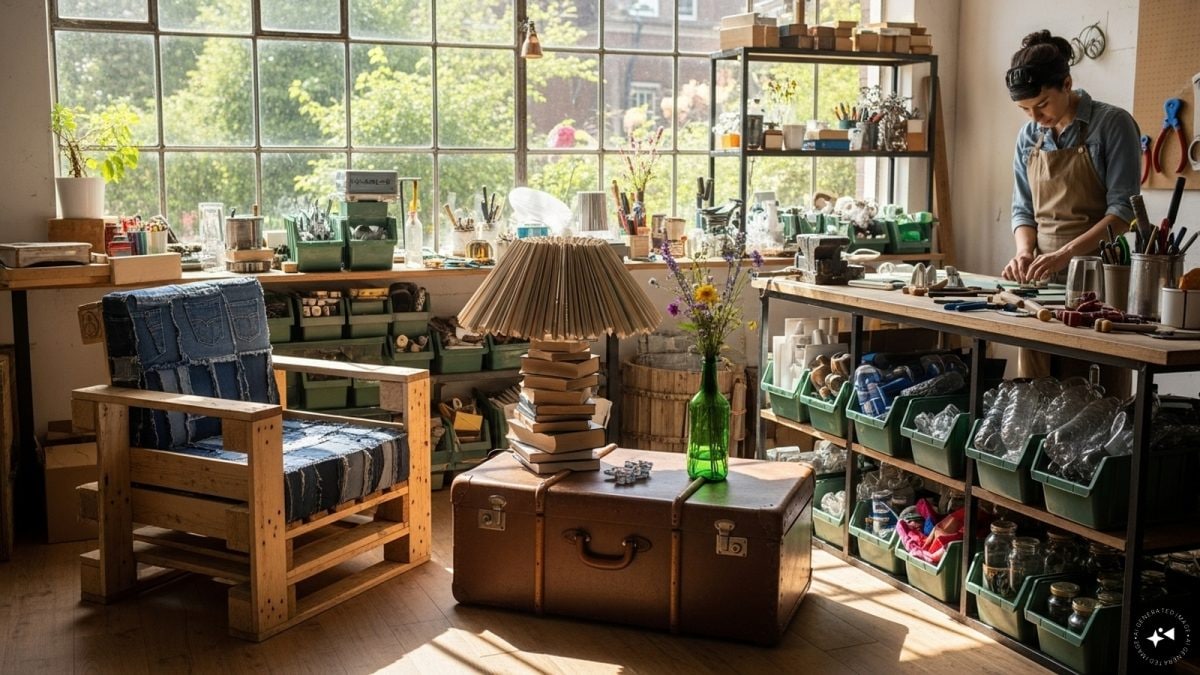Last Updated:
For Millennials and Gen Z, conscious consumption goes beyond avoiding waste. Whether in fashion, decor, or essentials, they are redefining what it means to live responsibly.

Upcycled products offer uniqueness and reduce carbon footprint.
Sustainability has moved from being a fringe conversation to a mainstream lifestyle, and leading this change are Millennials and Gen Z. For them, conscious consumption isn’t just about avoiding waste. It’s about aligning everyday choices with personal values, identity, and community. Whether it’s fashion, home décor, or daily essentials, young consumers are redefining what it means to live responsibly, one upcycled purchase at a time.
More Than Repurposing Waste
Recommended Stories
“As consumers are growing conscious of emerging environmental issues, sustainability has shifted from being a niche concern to a mainstream lifestyle choice,” says Soumya Kalluri, Founder of dwij. She adds, “Unlike fast fashion or goods produced at large scale, upcycled products carry a sense of uniqueness in each product. Each piece tells a story and allows consumers to make a style statement while reducing their carbon footprint.”
Digital platforms are a big part of this transformation. “Through social media, millennials and Gen Z easily identify brands that are working towards a social cause and promote sustainable living,” she explains.
The popularity of hashtags like #UpcycledFashion and #SustainableLiving reflects how strongly this movement resonates with younger audiences.
Community and Craft
The shift is also deeply rooted in local culture and collaboration. Kapil Bhatia, Founder & CEO, UNIREC, highlights how this movement is taking shape beyond metros. “In Guwahati, a group of local women gather every evening to turn old clothes into attractive products like handbags, cushion covers and table mats. What started as a personal concern for clothing waste has now turned into a community initiative that gives new life to discarded clothes,” he shares.
He adds, “From DIY home projects to community-driven enterprises and eco-conscious brands, Millennials and Gen Z in India are incorporating sustainability into daily life, not just as a priority, but as a powerful lifestyle.”
A Value-Driven Generation
For many young consumers, sustainability is personal. Vaishnavi Singh Dabi, Co-founder of Sanskruti Silks, observes, “Unlike previous generations, Gen Z shoppers are driven by values, purpose, and conscious choices when it comes to fashion. They are embracing minimalism, choosing fewer pieces that reflect their personality rather than following passing trends.”
She notes how they are investing in durable clothing, supporting artisans, and seeking out slow fashion labels. “Social media also plays a huge role, with influencers and creators sharing eco-friendly fashion ideas and holding brands accountable for transparency,” she explains.
Beyond Trends, Toward a Cultural Shift
The rise of upcycling is no longer just about eco-conscious buying. It’s a lifestyle shift led by Millennials and Gen Z. By championing mindful consumption, celebrating craftsmanship, and leveraging social media as a tool for awareness, this generation is shaping a future where sustainability isn’t optional but essential. What once seemed like a passing trend has now become a cultural movement that blends creativity, responsibility, and style into a lasting legacy.
Delhi, India, India
September 11, 2025, 16:18 IST
Loading comments…
Go to Source
Author: News18




